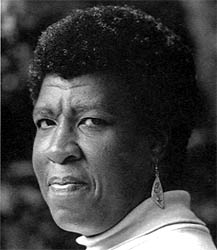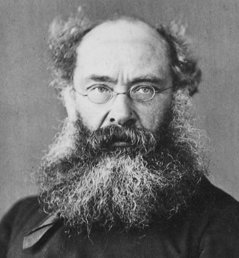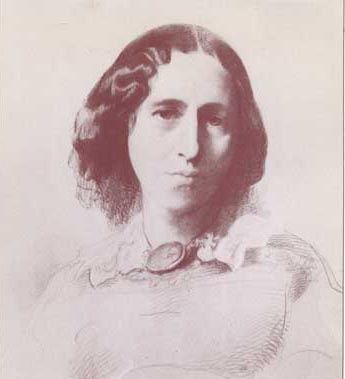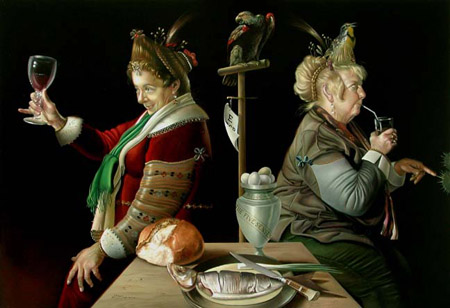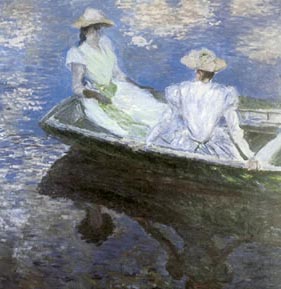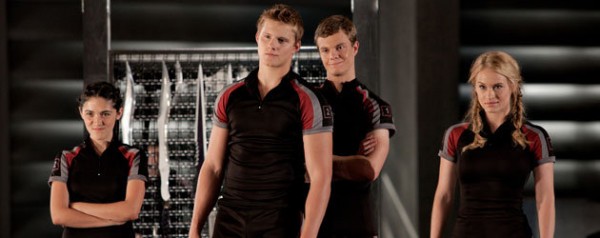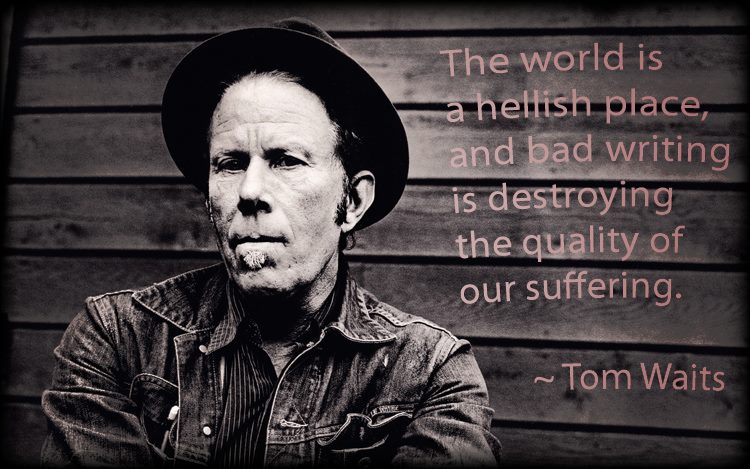Some novelists I've been reading:
Left to right, top to bottom: Chimamanda Adichie, Phillip Roth, Octavia Butler, and Elizabeth Jane HowardAnd some I always re-read...
Anthony Trollope George Eliot Lev Tolstoy
Fall 2018
Farewell-- Loved Working With You All!
Novel Writing Workshop
WRIT1-CE9357
Meredith Sue Willis Home Syllabus
Various NYU policies Individual Presentation Dates for Critiquing
Nonevaluative Grade Information
Some Optional Readingsupdated 12-18-18
Click Here for Current Week
-
How some contemporay writers revise (from Lit Hub)
-
Just for fun: Forbes Magazine's list of 2018's highest paid book writers (some are even novelists)
-
Online Journal that publishes only the openings of novels: Embark.
-
New piece on A Journal of Practical Writing by Allen Cobb on self-publishing.
-
I'm not the world's biggest fan of Jonathan Franzen, but here's his quirky list of rules for novelists.
-
MSW's article "Seven Layers to Revising Your Novel" from The Writer Magazine.
-
"41 Ways to Build Suspense" Website
-
Books recommended by Fall 2018 Novel Class: for pleasure and learning
-
William GIbson tweeted on 10-19-18: "The longer I write fiction the more I see 'the order of the information' as profoundly crucial, at any level: within a phrase, a sentence, a paragraph, a scene, a chapter..."
-
As requested, link to a short article on "Making Your Own Deadlines"
NYU WRIT1-CE9357
Novel Writing (Fall 2018)New York University Fall 2018
Mondays, 6:30 PM - 8:50 PM
Manhattan Village Academy, 43 W. 22nd Street, Room 360
Instructor: Meredith Sue Willis
E-mail: MeredithSueWillis@gmail.com
Homepage: Meredith Sue WillisText (Optional): Ten Strategies to Write Your Novel by Meredith Sue Willis
Available from the NYU Bookstore, from the publisher, and from the usual online suspects. Also, handouts and online links.
List of Presenters and dates
Scribendi's glossary of Fiction Writing Terms
A list of books about writing by well-known writers
Novel Writing Workshop
Syllabus--Schedule of Classes
This class welcomes beginning novelists, but moves fast as it is also aimed at writers who are well-underway on a novel and need further discussion and stimulation to continue or restart. We begin with a quick survey of common terms for discussing novels and a look at novel structure in general.
During the course of the class, you may bring a total of up-to 50 manuscript pages for critique (some of these pages will be for the whole group, some only for the teacher). For those with longer or revised manuscripts, this course may be repeated.
This syllabus will be updated regularly online, so please check this website at least once a week. Access to the website is also available from MSW's home page, look at the top left.
Please be prepared to discuss the work of classmates when they present. Assignments are optional and go only to MSW. Discuss with her if you prefer to turn in ten pages five times or two long sections of your novel-- think about how you would like your feedback. Anything you turn in to MSW, however, including the presentation pieces, counts towards the total of 50 pages to be reviewed in the course of the semester.
All writing and presentations should be from the novel you're working on.
You may request a grade for this course or a Non Evaluative mark. For the Non-Evaluative, please see the attached form. A copy of this request must be filed with the department. Send it by email to lc9@nyu.edu or kf38@nyu.edu.
No letter grade will be given below a B. To earn a B, you must complete 50 pages to the professor's satisfaction plus present work for critiquing by the class at least once. To earn an A, you must complete the 50 pages, present work for critiquing by the class at least twice, show evidence of having done any outside reading, plus participate fully in class discussions.
It should be noted that all NYU policies on academic integrity, i.e., plagiarism, are fully in effect in this course. For various NYU policies, click here.
Disclaimer: Syllabus is subject to change due to current events, guest speaker schedule changes, and/or level and interests of students.
Session 1. 10-1-18
Welcome to Novel Writing-- The hope is that we'll move our novel projects forward through drafting new material, critiques, brief exercises, and conversation.
Assignments-- Reading Assignment: For tonight, read in Ten Strategies to Write Your Novel "Strategy 1: Separate Process and Product." and take a look at Francine Prose's Five Classics to Read and Re-read. What are your personal novel classics?
Writing Assingment: Please bring ten copies of the first page only of your novel or any one page sample of your writing.
In Class Discussions:
Stages of novel writing: at what stage are you?
Structure of the course.
Common vocabulary--Process versus product, pacing, when to dramatize, when to elide.
The importance of Scene. What is Scene? Why is it important? The building block of novels?
How do we evaluate fiction? What do you read? What kind of feedback do you find most useful?
What do you need from this course?
SCHEDULE PRESENTATIONS FOR CRITIQUE.
No Class 10-8-18
Session 2. 10-15-18
Link to short article on "Making Your Own Deadlines"
Writing Assignment: The first time a character visits a place in your novel– describe the place using all five senses if possible.
Remember: it's your choice to do the assignments or substitute, but everything should be from your novel, and the total number of pages you may turn in for response from the instructor is 50 (that includes pieces presented to the whole group.)
Reading Assignments:
Read the writing samples from class members handed out at the first class.
Material online on Scene if you haven't read it yet.
Read two chapters in Ten Strategies, "Strategy 2: Taste It, Touch It Smell It..." and "Strategy 4: Find Where You Stand--Point of View."
Look over conventional editorial marks.
In Class discussion: Point of view and the essential importance of concrete language in fiction.
INDIVIDUAL PRESENTATIONS BEGIN. (See Schedule below).
Session 3. 10-22-18
Assignment:: A scene with a lot of people in it-- a group scene. This might be a party; a battle; a bar;
a church dinner; a class; a museum or stadium or other public space; or other. Use some of the people as part of the setting: colorful clothes? a mass of unfamiliar faces? Think about the point of view of this scene: is it being told by someone in the midst of it or from a great distance? Is it first seen in full, as a long shot? Or is it first seen up close, from one character's sense of being lost in the crowd? Or is the point of view from the speaker's platform, from the point of view of someone who is carrying out a subversive act?
Also, do bring in the novel structure worksheet that was handed out in class.
Reading Assignment: (NOTE: the chapters in Ten Strategies to Write Your Novel aren't assigned in order) If you haven't already, be sure to read the two chapters in Ten Strategies from last week: "Strategy 2: Taste It, Touch It Smell It..." and "Strategy 4 Find Where You Stand--Point of View."
Also, read these notes on Grounding and the logistics of crowd control. Also, take a look at https://www.meredithsuewillis.com/materials.html#povsamples and https://www.meredithsuewillis.com/materials.html#presenttense.
In Class discussion: Point-of-View. Structural worksheets; your summaries.
PRESENTATIONS (Schedule below)
Session 4. 10-29-18
Assignment: Write a scene focused on dialogue.
Reading Assignment: Ten Strategies, "Strategy 5: Master Dialogue and Scene."Also read the material on dialogue at: Dialogue Tags ; Types of Discourse; and " Dialogue: The Spine of Fiction." (article by MSW about dialogue online).
For some techniques for writing inner dialogue, see The Editor's Blog on choices for writing "Inner dialogue." For a more concise version of this information, see Grammar Girl.
In Class discussion: Structuring dialogue and scene. More on when to Show and Tell, Narrate and Dramatize.
PRESENTATIONS (Schedule below).
Session 5. 11-5-18
Assignment: Write a scene focused on a minor character.
Read: Ten Strategies, "Strategy 9: Master Logistics."
Excerpt from Trespassers. and brief notes on minor characters if you haven't read them yet. Also see these sample descriptions of minor characters.
In class, physical action (small motor--gesture, and large motor--action. Also movement of groups, movement through space: loglistics).
In Class discussions:
Some issues and solutions to Point of View problems
Discussion of staying motivated in the face of rejection and other obstacles in the course.
PRESENTATIONS (Schedule below).
No Class11-12-18
Session 6. 11-19-18Assignment: Write a scene that uses a technique from film (establishing shot, jump cut, etc.). For more on what I mean by this (and ideas for what to write), see useful film terms and Closeup-longshot as well as Ten Strategies, "Strategy 7: Use Film Techniques."
More Reading: Take a look at these notes on using the present tense in narrative and some thoughts on structuring novels here.
For more on logistics and writing physical action , take a look at this passage from one of my novels in which a character is at a political demonstration.
PRESENTATIONS (Schedule below).
Session 7: 11-26-18
Assignment: Write a scene that uses a technique that is especially successful in fiction (interior monologue, memory, word play, flashback, summary, playing with time, etc.) . Read flashback note here.
Reading Assignment: Ten Strategies, "Strategy 3: Explore Characters from the Inside Out." and "Strategy 8: Doing What Novels Do Best"
In Class discussion: The interior life of your character.
Structure of the novel continued: Outlining.
PRESENTATIONS (Schedule below).
Session 8. 12-3-18
Assignment: An Outline of your novel
Reading Assignment: Ten Strategies, "Strategy 6: Structure Your Novel"
Check out this summary of how you structure Multi-plot novels.
Brief marketing & publishing discussions. Places to submit work: Get on this list for regular email offerings by sending an email to CRWROPPS-B@yahoogroups.com. Try going to Facebook and searching for "Calls for submissions (poetry, fiction, art)" Sign up to get notices. One place to go looking for possible places to publish is NewPages.com. Also check out on this web page Places That Publish, but keep in mind you have to do some research first as many of these places close now without notice.
Here's some online information about submitting and marketing your work in the age of e-books and self-publishing: Take a look at notes on various kinds of publishing at Publishing Types and Print on Demand. Here is a note on self-publishing: New piece on A Journal of Practical Writing by Allen Cobb . A couple of older articles/blog posts that are still interesting: Veronica Sicoe on why she self-publishes and a Wall Street Journal article about Marlen Bodden, a former student in one of my novel classes who first self-published-- and then had her book picked up by a commercial press. Note: self-publishing should probably never be you first choice, but it should be on your list of possibilities.
PRESENTATIONS (Schedule below).
Session 9. 12-10-18
Assignment: Write the most important scene of your novel.
Reading Assignment: Ten Strategies, "Strategy 10: Revise Your World." Also take a look at my article Seven Layers to Revising Your Novel ( from The Writer (November/December 2012, Vol. 125, Issue 11).
In Class discussion: How we revise novels-- keeping our writing going.
PRESENTATIONS (Schedule below).
No material may be turned in for feedback after Friday, December 14, 2018.
I want to return everything at the last class.
Session 10. 12-17-18
INDIVIDUAL PRESENTATIONS and Farewells.
(Schedule below).
Reading Assignment: How some contemporay writers revise (from Lit Hub)
Also, if you haven't read them yet, look at Ten Strategies, "Strategy 10: Revise Your World" (especially see how MSW revises on p. 163) and at my my article Seven Layers to Revising Your Novel ( from The Writer (November/December 2012, Vol. 125, Issue 11).
Optional: Hero's Journey: Short Version
All assignments should be PART OF YOUR NOVEL. You may substitute any short section for the assignments, keeping in mind that the total submitted to MSW may not be more than 50 pages..
Miscellany of optional readings--click here
Work by Meredith Sue Willis Available Online:
Feral Grandmothers: Little Red's at Persimmon Tree.
"My Most Embarrassing" short short at Two Hawks Quarterly
"Tara White" as published in Bloodroot Literary Magazine 2009
"Tales of the Abstract Expressionists" as published at Tatlin's Tower;
"Recessional" as published at Coelecanth Magazine
"Scheherezade and Dunzyad" in The Pedestal Magazine
Some nonfiction by MSW available online:
"The Business of Books, by André Schiffrin," reviewed by Meredith Sue Willis (the status of publishing)
"On Cutting," (article by MSW about editing and revising)
" Dialogue: The Spine of Fiction," (article by MSW about dialogue)
Don't forget: if you are reading one week,
bring copies for the class the week before.
10-15-18
Suzanne Martinez
Krystle Epum
10-22-18
Vicky Oliver
Brian Naujelis
10-29-18
Alec McCabe
Laura Moss
Omri Besalel
11-5-18
CiCi Chen
Sam Bowman
Lena Vasilyeva
No Class 11-12-18
11-19-18
CiCi Chen
Suzanne Martinez
11-26-18
Omri Bezalel (Double)
Alec McCabe
Vicky Oliver
12-3-18
Cici Chen
Brian Naujelis
Laura Moss
12-10-18
Vicky Oliver
Suzanne Martinez
12-17-18
Laura Moss
Lena Vasilyeva
Alec McCabe
Books recommended by Fall 2018 class:
Novels especially useful for learning to write novels
Michael Chabon Yiddish Policemen's Ball and Wonder Boys
Nicholas Delbanco The Years
Brett Easton Ellis Rules of Attraction
Gillian Flynn Gone Girl
Terry Hayes I Am Pilgrim
C. David Heymann A Woman Named Jackie (biography)
George R.R. Martin Game of Thrones etc.
Haruki Murakami Sputnik Sweetheart
Jo Nesbo Macbeth
Tim O'Brien The Things They Carried
Lori Roy Let Me Die in His Footsteps
Elizabeth Strout Amy & Isabelle
Donna Tartt Secret History
Jeff Vandermeer The Southern Reach Chronicles
More recommended Books from Previous Classes:
Federle, Tim: Better Nate. Than Never Character
Hiaasen, Carl: Razor Girl .Plot, engaging, action
Ishiguro, Kazuo: Remains of the Day. Revealing plot through first person narrative with a subtext
Martin, George R.R.: The Fire and Ice multi-ology Uses many close 3rd persons, and shows you don't have to know everything about each character.
McCann, Colum: Let the Great World Spin. Many voices/stories/all interwoven by the end.
Roth, Philip: American Pastoral
Russo, Richard: Empire Falls. Character development; strong Point of view, alternating chapters
Tan, Amy: The Joy Luck Club .Multiple perspectives & voices, how to structure a number of subplots and character building for a number of individuals.
Tolstoy, Leo: Anna Karenina . Third person close that puts you inside characters' heads.
Authors and Works recommended
Cortazar, Julio Hopscotch
Ferrante, Elena (Neapolitan Novels)
Federle, Tim Better Nate Than Never
Gallant, Mavis
Gass, William In the Heart of the Heart of the Country
Goldman, Francisco Ordinary Seaman
Goldstein, Rebecca 36 Arguments for the Existence of God: A Work of Fiction
Hawkins, Paula Girl on the Train
Hemingway
Irving, John A Prayer for Owen Meany
Karr, Mary Liar's Club: A Memoir
King, Stephen 11-22-63
Koontz, Dean
Larsson, Stieg The Girl with the Dragon Tattoo
Leonard, Elmore The Switch
Lively, Penelope Moon Tiger
Marias, Javier Heart so White
Marquez, Gabriel Garcia
Murakami, Haruki Wind up Bird Chronicle
Patterson, James Along Came a Spider
Perlman, Eliot The Street Sweeper
Salinger, J.D. Nine Stories
Stefansson, Jon Kalman Heaven and Hell
Toibin, Colm Mothers and Sons
Wright, Bil Putting Makeup on the Fat BoyDramas: Shakespeare; Wilde, Oscar The Importance of Being Earnest
Novels Recommended by Other Classes
(For books about writing, see https://www.meredithsuewillis.com/resources.html#bibliography)
Various NYU Policies
Course Description: Beginning with a discussion of the basic elements and structure of novels, the class will include instruction and exercises for those just getting started, as well as a serious exploration of how to organize novels and other long prose narratives for those writers with projects already underway. Writing exercises will cover shaping, establishing tone, exploring character, tightening and enriching dialogue, and working with interior monologue. Topics for discussion will include sustaining interest for the writer as well as the reader, making a place in your life for your novel, and highlighting what novels do that film can't. We will look closely at up to 50 pages of manuscript from each participant. This syllabus will be updated regularly online, so please check this website at least once a week at http://meredithsuewillis.com/nyunovelwriting%20spring%202018.html
Course Prerequisites: Interest in novel writing.
Course Structure/Method: This in-person class uses short homework assignments, in-class writings, class discussion and regular critique. Please check the class website (http://meredithsuewillis.com/nyunovelwriting%20spring%202018.html ) at least weekly for changes.
Course Learning Outcomes: By the end of this course, students will have lengthened their novels and gained insight into how to continue and deepen their fiction.
Communication Policy: Communicate with the teacher via her email: meredithsuewillis@gmail.com. She tries to get back promptly, but is a working writer with family and civic responsibilities.
Course Expectations: Homeworks are due as described on syllabus, but subject to change and substitutions are allowed. See website for updates. Attendance and class participation are expected.
Required and Recommended Material: There are three kinds of required readings: passages from the text Ten Strategies to Write Your Novel as detailed on the syllabus; any student samples for critique that are distributed; certain short readings online.
NYU Policies: NYUSPS Policies regarding the Family Educational Rights and Privacy Act (FERPA), Academic Integrity and Plagiarism, Students with Disabilities Statement, and Standards of Classroom Behavior among others can be found on the NYU Classes Academic Policies tab for all course sites as well as on the University and NYUSPS websites. Every student is responsible for reading, understanding, and complying with all of these policies. The full list of policies can be found at the web links below:
• University: http://www.nyu.edu/about/policies-guidelinescompliance.html
• NYUSPS: http://www.nyu.edu/about/policies-guidelinescompliance.html
School Grading Policies: Graduate, Undergraduate and Non-Degree grading scales are very different. Please provide the link to the grading policy appropriate for your course. The links are listed here.
NYUSPS Graduate http://sps.nyu.edu/academics/academic-policies-and-procedures/graduate-academicpolicies-and-procedures.html#Grades
NYUSPS Undergraduate http://sps.nyu.edu/academics/academic-policies-and-procedures/undergraduateacademic-policies-and-procedures.html#Grades_and_Grade_Point_Averages
NYUSPS Career Advancement (non-degree)http://sps.nyu.edu/content/scps/academics/noncredit-offerings/academic-noncreditpolicies-and-procedures.html NYUSPS Diploma (non-degree) http://sps.nyu.edu/academics/academic-policies-and-procedures/diploma-academicpolicies-and-procedures.html#Good_Academic_Standing
Assessment Strategy: This is an ungraded class for which grades are available if you want them, but the real assessment is through interactive critique of your work. You are expected to attend and participate. To earn a B, you must turn in fifty pages, attend 8 of 10 sessions, and present your work at least once as well as showing evidence of having read other students' work. To earn a B, you must turn in fifty pages, attend at least 9 of ten sessions, and present your work at least twice to the group as well as respond and show evidence of having read the other students' work.


